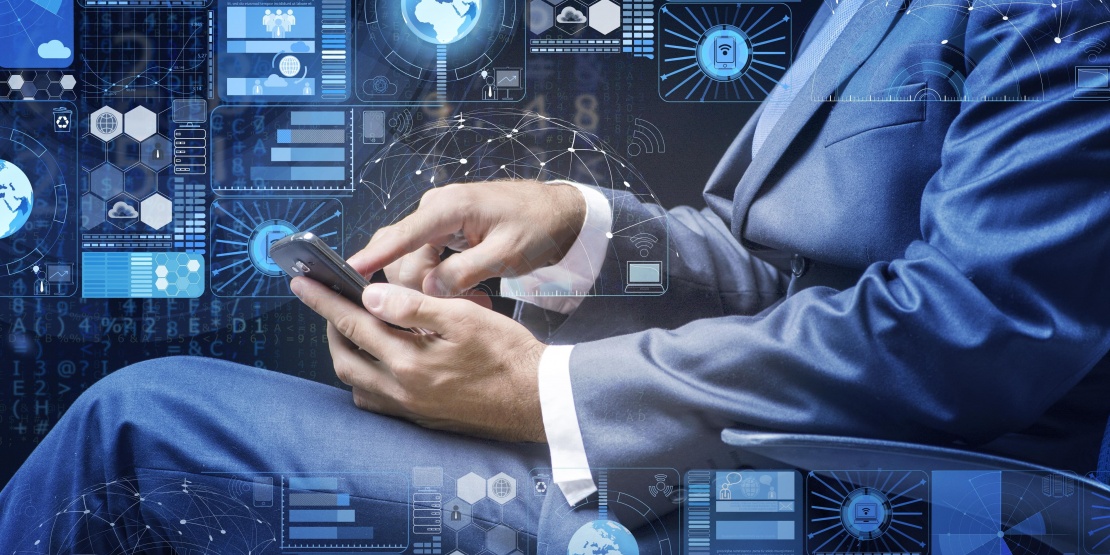In light of the health crisis, companies have had no choice but to accelerate their digitalisation. Although new technologies require investment, they are now synonymous with competitiveness, agility and resilience. The field is evolving at a phenomenal rate, with a whole host of technological advances being made. In particular, there are five main technologies driving progress in the procurement world.
1. Artificial Intelligence
In procurement, interest in artificial intelligence is growing, and for good reason. The term "AI" encompasses various concepts that centre around a technology's capacity to replicate cognitive behaviours. Examples include machine learning algorithms, and even automatic natural language processing to enable humans and computers to communicate.
However, concrete applications for Artificial Intelligence in a procurement context don't always immediately spring to mind. A study by Ivalua and Axys Consultants indicates that more than a third of procurement officers feel that they're lagging behind their competitors when it comes to harnessing this technology. However, some companies are already enjoying the benefits that AI has to offer. In particular, the aforementioned study highlights how AI can be used to deduplicate supplier data—in order to reduce the impact of redundant data, thereby optimising its storage—and even automatically enter data extracted from images of invoices.
2. Big Data and predictive analytics
Predictive analytics solutions facilitate decision-making by exploring and analysing vast quantities of data to provide concrete information. These technologies can identify models and make predictions based on a large number of factors. With key self-service analyses and forecasts for spend, demand and pricing etc., procurement services are able to improve visibility and gain a better understanding of the trends influencing their business. As a result, procurement departments can make better decisions and create more value for the company.
With this in mind, various players in the food industry have decided to collaborate on the use of data, so that they can all benefit from it. They analyse structured and unstructured data from a variety of sources (internal research, customer surveys, social media etc.) to better predict customer demand and streamline their supply chain.
3. Mobile devices
Currently, there are more than five billion mobile device users in the world, equating to more than two thirds of the global population. This is not surprising. Mostly thanks to the Internet, the use of mobile devices is growing rapidly as users can access information anytime, anywhere.
These benefits are apparent both in a personal and professional context. Procurement platforms are not yet capitalising on this technology, but soon they will have to. Imagine being able to respond to notifications, quickly scan barcode information and coordinate operations both on-site and off-site. This would significantly reduce turnaround times and increase the operational efficiency of teams. This is especially relevant given the development of 5G, which is expected to vastly increase the power for processing and updating data in real-time.
4. The Cloud
Of all the technologies, cloud computing is the one that has and will continue to have the greatest impact on procurement platforms. Combining flexibility and modularity, the cloud offers users unlimited storage and access to data or programmes via the Internet, instead of a computer hard drive.
Most importantly, cloud solutions require no upfront investment, both in terms of IT infrastructure and staffing, and they also need less maintenance. Furthermore, cloud technology is relatively easy to implement, scalable and secure, and can support organisations as they grow. Given the benefits that come with cloud-based applications—including significant time savings and increased profitability—and the high number of organisations that are adopting them, their value in the context of procurement no longer needs to be justified.
5. Blockchain technology
While still in its infancy, blockchain technology is starting to arouse curiosity in the procurement world. Organisations can use this technology to store and send information securely, with complete transparency. In this decentralised virtual account book, all transactions are recorded, signed and visible to all stakeholders in the network.
For buyers, blockchain technology has several possible applications. For example, it can help combat counterfeiting in supply chains by marking products with traceable information regarding its origin, and can also help speed up global transfers of funds and goods, as it doesn't require third-party verification.
The digital revolution is transforming procurement. These technologies will not only help buyers create value, but will also make their daily lives easier, both in the short and the long run.









